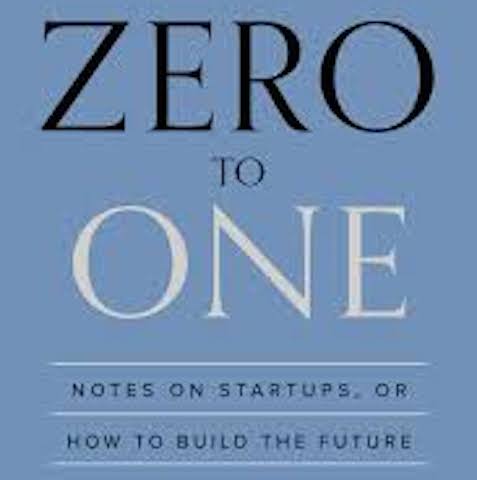Au aterizat la mine în telefon sau pe iPad și mi-au plăcut:
Peter Thiel, Zero to One – are și omul teoriile lui șisunt de acord cu o mare parte din lucrurile pe care le spune despre companii; pentr u celelalte lucruri cu care nu sunt de acord îmi place replica dată de Virginia Postrel: Peter Thiel is wrong about the future:
u celelalte lucruri cu care nu sunt de acord îmi place replica dată de Virginia Postrel: Peter Thiel is wrong about the future:
„People believed the future would be better than the present because they believed the present was better than the past. They constantly heard stories – not speculative, futuristic stories but news stories, fashion stories, real-estate stories, medical stories – that reinforced this belief. They remembered epidemics and rejoiced in vaccines and wonder drugs. They looked back on crowded urban walk-ups and appreciated neat suburban homes. They recalled ironing on sweaty summer days and celebrated air conditioning and wash-and-wear fabrics. They marveled at tiny transistor radios and dreamed of going on airplane trips.”
Creative Social, Hacker, Maker, Teacher, Thief. Speram să fie o carte interesantă, am primit-o de la serviciu pentru că oamenii ne sunt colegi de etaj dar din păcate e doar o colecție de eseuri care sună mai mult a păreri pe care le-aș fi uitat dacă le găseam din întâmplare gratuit pe internet pe Medium sau pe undeva. O mână de oameni, în principiu din publicitate, discută despre cum cred ei că o să se schimbe rolul creativului, omului de strategie și așa mai departe de-a lungul timpului. Foarte mulți sunt fataliști în gândire („ce nasol, generația mea a ratat-o, voi sunteți viitorul”), unii sunt foarte ancorați în trecut și cred că o să fie la fel cum a fost pe vremea lor, probabil doar două-trei eseuri merită citite.
Paul Dolan, Happiness by Design. Parafrazandu-l pe Aristotle, happiness is what you pay attention to. Îmi place faptul că e un economist care brusc a devenit interesat de ideea de a vedea cum putem să măsurăm fericirea și să devenim mai fericiți în ansamblu, foarte conștient de felul în care domeniul în care lucrează evaluează greșit oamenii atunci când presupunem că suntem perfec raționali dar de fapt suntem orice dar nu raționali. Am descoperit un paradox fascinant care e partea a doua a unui puzzle. Citesc destul de multe despre obezitate și mai demult când am citit Paul Bloom – How Pleasure Works și David Linden – The Compass of Pleasure am învățat că problema cu obezitatea* din punct de vedere al dopaminei și circuitului „plăcreii” din creier e faptul că mâncatul nu le oferă la fel multă plăcere celor obezi, rezultând în mâncat excesiv doar ca să obțină un mic buzz de plăcere.
Partea a doua din cartea lui Paul Dolan e asta, anume că oamenii nu se simt neapărat mai nefericiți dacă se îngrașp. Pur și simplu se adaptează și găsesc o scuză.
„I have also looked at the existing life satisfaction data to see what happens to people as they gain weight. They get less happy, right? Well, no, not really. Life satisfaction is hardly affected by weight gain.Your body mass index (BMI) would have to increase by at least 30 BMI points (which would be very extreme, since obesity is defined as a BMI of 30) to have about the same negative effect upon your satisfaction levels as a marital breakdown. The theoretical model we developed posits that you can do one of two things to stay happy when you gain weight: the first is to expend effort in losing weight, and the second is to expend effort in playing down the importance of weight gain in your life. Our data analyses support the second explanation.As people put on weight, they shift the focus of their attention away from parts of their lives that are associated with weight, like health, toward aspects where their weight is less important, like work. This shift in attention explains some of the behaviors we observe; many of us gain weight but do not lose it. The effort needed to lose weight may be greater than the effort required to shift the attention you give to your health and weight.”
De multe ori am văzut campanii care încearcă să reducă obezitatea făcând oamenii să se simtă vinovați de cât mănâncă, dar vinovăția și rușinea sunt probabil cele mai ineficiente metode de fapt.
